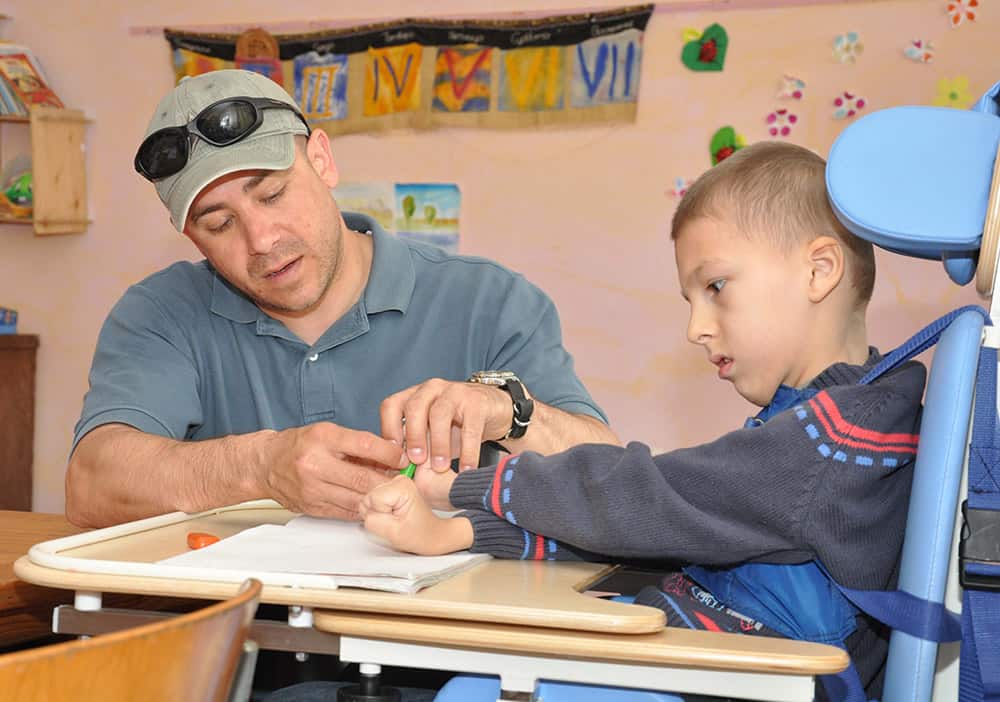35 new special free schools set to help children with SEND access specialist equipment

Up to 3,000 new school places are to be created for children with special educational needs and disabilities (SEND), providing tailored support and specialist equipment.
Revealed by the Department for Education (DfE), these new school places will give pupils with complex needs access to equipment that supports their individual needs, such as sensory equipment and communication aids.
Staffed by specially trained teachers, the 35 new special free schools are expected to be available from September 2022 onwards.
Education Secretary Gavin Williamson has approved 33 school trusts to open and run 37 new schools. Two of these will be solely for children who have been, or are, at risk of being excluded from mainstream education, to level up their educational outcomes and to keep them engaged in learning.
According to DfE, the remaining 35 will help drive up standards in special education, providing support and teaching for pupils with complex needs such as autism, severe learning difficulties or mental health conditions.
Dame Christine Lenehan, Director of the National Children’s Bureau, commented: “We are pleased to welcome additional schools and school places for children with some of the most complex needs.
“We are clear that all children have the right to the best quality education and we look forward to seeing these schools lead by example and enabling children to have the best possible outcomes.”
The 3,000 additional school places for children with SEND builds on the free school programme, which promotes innovation, with more than 500 already open across the country, including 44 special and 47 Alternative Provision (AP) free schools.
These new schools will take advantage of the freedoms and opportunities provided by the free school system to ensure that children with SEND and in AP are receiving the tailored support they need to fulfil their potential.
Education Secretary Gavin Williamson said: “Now more than ever we need to make sure we are putting our most disadvantaged and vulnerable children first, including those with complex needs.
“We need to be more ambitious for these children, which is why we are delivering on this Government’s commitment to deliver more school places for children with complex special educational needs. This will give these young people the opportunity they deserve for tailored support in a school that responds to their individual needs, making them confident learners and engaged students.
“At the same time, I also want to transform the experience of children who have been permanently excluded or are at risk of being removed from the classroom. These new schools, adding to the network of excellent free schools around the country, will help level up opportunities for children from all backgrounds so they can receive a world-class education.”
Free schools are new schools set up by parents, teachers, charities, academy trusts and existing schools in response to demand from the local community.
These 37 new schools add to the 44 special and 47 AP free schools already open, and the 49 special and eight AP free schools in the pipeline. On completion, it takes the total number of special free schools in England to 128.
Charity grants have also been provided to families on low incomes with disabled children to pay for specialist equipment required during the lockdown period.
Of the new free schools:
- three will be in the North East, providing over 200 places in total mostly for children with social, emotional and mental health needs (SEMH);
- six will be in the North West, providing over 400 places, including for children with SEMH, Autistic Spectrum Disorder (ASD), Severe Learning Difficulty (SLD) and speech, Language and Communication Needs (SLCN);
- five will be in Yorkshire and the Humber, providing over 500 places including for children with SEMH, ASD, SLD, Profound and Multiple Learning Difficulties (PMLD) and SLCN;
- one will be in the East Midlands, providing 50 places for children with SEMH;
- three will be in the West Midlands, providing over nearly 300 places including for children with SEMH, ASD and Multiple Learning Difficulties (MLD);
- three will be in the East of England, providing over 300 places including for children with SEMH, ASD and SLCN;
- four will be in London, providing over 300 places including for children with SEMH, ASD and SLCN;
- four will be in the South East, providing over 300 places including for children with SEMH and ASD;
- six will be in the South West, providing 500 places including for children with SEMH, ASD, Complex Learning Difficulties (CLD) and SLCN; and
- two Alternative Provision free schools will provide over 100 places in the West Midlands for children who have been, or are at risk of being, excluded from mainstream education.

